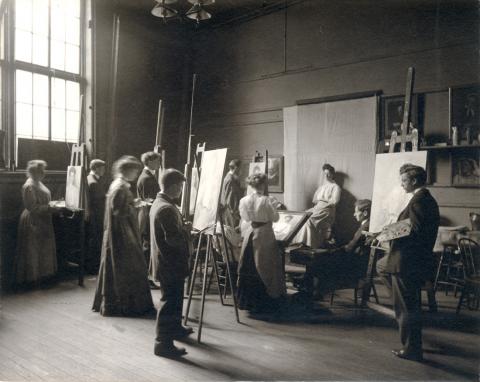Take Your Pick, Take An Elective
Nov 30,2015
When you sign up for classes every quarter, chances are you're focused on satisfying as many requirements for your major as possible, so you mostly stick to classes directly pertinent to it. Of course, not everyone has settled on a particular major yet, so it is understandable that such people stick to classes that fulfill university or general elective requirements. Such courses are invaluable because they expose students to new fields of study and thus potential majors. But one shouldn't limit their consideration of electives to whether they complete university and GE requirements or not.
With all the fretting they do over units, grade point averages, and financial aid considerations, it's not at all surprising that students would feel like they have to take courses not necessarily because they enjoy them, but just to get by. While it is indeed important that students factor in such information when enrolling in courses, they should not let it get in the way of the primary mission of every university: that is, to facilitate and encourage learning. And although it might not be part and parcel of your standard liberal arts education, you have every right to pursue classes in subjects that satisfy nothing more than your desire to learn.
Having an elective can help break the routine of studying subsets of the same subject each quarter or semester. After a week of dull lectures and monotonous readings, you would have a fun class where you play piano or paint landscapes to look forward. It doesn't necessarily have to be an applied or technical subject that you learn about: it can be a lecture or seminar on an academic topic not covered in your other classes. Depending on what course you enroll in, you don't even have to be familiar with the material beforehand. While it certainly can be a field or activity that you are already involved with, it can just as easily be something that you have no experience with but are nevertheless curious about.
Although it is not strictly necessary when considering taking an elective, you could easily kill two birds with one stone if you enroll in a course that fulfills general education requirements. The good thing about GE's is that they are fairly broad for the most part, so you have many opportunities to satisfy them with a class that you are personally interested in. For example, if you have to take at least one class in art, then you can enroll in an art history or theory class. As a bonus, if you want to further pursue art after you take the course or wanted to prior to taking it, you can supplement it with an applied arts course in painting, sculpting, or whatever it is you want to learn more about. Again, it's not required your electives take care of your GE's, but if you can pick ones that do, why not?
This is why it's important to think carefully about not only taking electives, but deciding which ones to take. The possibilities are truly endless, but the ones you choose or even the decision to take one at all is entirely up to you.





